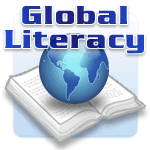Coverage

Global Literacy: Phillipines
September 08, 2008
HotChalk

Digital literacy in the Philippine archipelago faces geographic and linguistic challenges unlike anywhere else.
The numbers tell the tale: A population of 89 million lives on the 7,000 islands that make up the country, and they speak hundreds of languages. Some 20 million elementary and high school students are spread out in 45,000 schools. No wonder, then, that the Department of Education is the largest government ministry. It has a huge job. But the Philippines is taking huge steps to provide its 480,000-plus teachers with computer skills. It isn't easy, according to Ministry of Education Secretary Jesli Lapus, who spoke to HotChalk at an international digital literacy conference in Kona, Hawaii in early August. The conference was sponsored by Utah-based Certiport, which does computer skills training and certification, and develops proficiency standards.
"How do you deliver the same high quality education to as many students as possible in the shortest time? That's a tall order in our country," said Lapus. The Philippines has strictly centralized education, Lapus said. Elementary school is grades 1 thru 6 and high school is grades 7 thru 10. Both schools are mandatory. Kindergarten is being developed, with a million Filipino children now attending. Technological competence has to be an integral part of Philippine education, Lapus said."It is not a whim or a wish, it is the norm and it is inevitable, and we must do that," he said.
But the country's particular geography means that marked inconsistencies in schools also are inevitable. "Where you have 45,000 schools spread out all over the country, the problem that some schools would lag behind in information technology is there," Lapus said. Some of the schools in the thousands of islands are small and far-flung. Remote areas do not have delivery services such as UPS and DHL, making distribution of even hard copies of materials difficult. And, there are schools without any computers at all.
With connected schools and IT-literate teachers, though, there could be great strides in teacher training and sharing of best practices. School-based management would become a reality, says Lapus, and computer training is underway. Between 20 and 25 percent of the Philippine's teachers have had some form of computer training by private-sector partners, and both Intel and Microsoft are contributing to the country's development of IT education for teachers and students.
Technology is fundamentally altering education, according to Lapus. A teacher used to deliver content to students who were passive recipients of knowledge in an environment of four walls, but that's no longer the case, Lapus said. "Learning can and should happen anywhere and anytime," he said. "It's not just reforming the system. It's transforming the system. And this is happening throughout the world." He believes that the Philippines can be part of the transformation.
"We think we have the solutions, but the issue is how well and how fast can we scale them up to affect the entire system," Lapus said. "And it can only be done with technology." Teachers are the key. At the end of the day, they're in charge of their own turf, and they have the ability to empower the country's youth with tech skills, he said. With those tech skills come jobs.
By an important indicator, the Philippine economy needs strengthening. Its gross domestic product ranks fifth out of the original five member countries of ASEAN, the Association of Southeast Asian Nations--behind Indonesia, Thailand, Malaysia, and Singapore. But it's gaining momentum and poised for huge growth. "Right now," says Lapus, "We're only second to India in terms of being the world's business processing outsourcing [BPO]. And the potential is more than three or four times than what we have now." BPO includes such services as call centers, accounting, and some engineering design. Lapus feels a sense of urgency about the effort to expand digital literacy. "We in the developing countries should feel even more insecure than developed countries about catching up and integrating IT into education."
Resistance to change, a universal phenomenon, can be a more serious problem than limited resources, Lapus said, but he has faith in Filipinos. "We recognize that our advantage in global competitiveness in the Philippines is the quality of our human resources." To maintain that advantage, the Philippines must embrace digital literacy and even try to take a lead. In agreement with other educators and officials at the conference, Lapus stressed that government on its own is not the way to increase digital literacy. "Education," he says, "Is a societal concern."